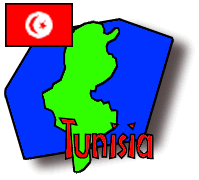Words of the Day: La bess — "fine" or "it's alright"; monj — "OK" or "cool"
People of the Day: Porter Gale and Donna Murphy
Place of the Day: Olive country
Group Dispatch, October 31–November 1

Questions? Ask Corinne ![]() !
!
Return to Fast Facts
 |
 |
 |
 |
 |
|
Itinerary/ Journal |
Discussions |
About Tunisia |
eDscape Projects |
Scrapbook |
|
|
|
|
|
Copyright 1997-2004 BikeAbout. All rights reserved.
